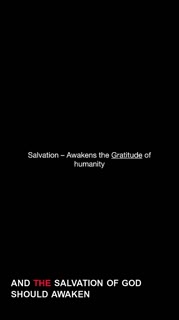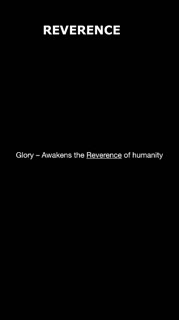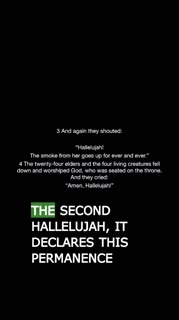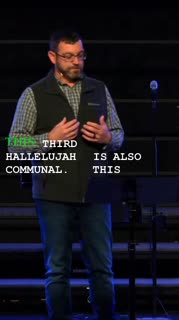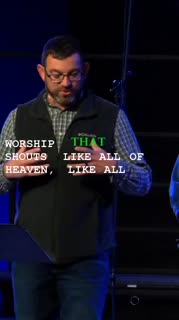Celebrating Divine Victory: The Wedding Feast Imagery
Devotional
Sermon Summary
Bible Study Guide
Sermon Clips
But for him, this time of exile, this time of solitude, it provides a quiet setting, a setting that enables him to have deep meditation, a deep communion with God. And so John, a devoted follower of Christ, he spent significant time in prayer, significant time in reflection and worship of God. [00:47:59] (25 seconds)
And the salvation of God should awaken the gratitude of humanity. The fact that God offers salvation through Jesus should result in our gratitude. Our salvation is all about God's grace. It's all about His mercy towards. Towards sinners. Towards us. This broken world's only goal is to keep you away from Jesus. [01:00:55] (29 seconds)
Reverence for God is this attitude of deep respect. It's of all. It has an adoration toward God. It involves recognizing God's holiness, His majesty, His power, as well as acknowledging that our humble position before Him. It's honor and respect. It's both personal faith and communal worship. [01:02:11] (31 seconds)
God's power is not just an abstract concept, but it's an accessible reality to those who believe in him. And it calls for trusting, and trusting enough that we have this faith-filled response to him. The power of God awakens and strengthens trust as we recognize his active presence, as we recognize his constant faithfulness. [01:03:35] (33 seconds)
The second hallelujah, it declares this permanence of Babylon. Her smoke rises forever and ever. It signifies the definitive end of evil. This definitive end to the rebelliousness against God. And it provides hope to believers. That oppression, that sin, will not have the last word. [01:05:01] (30 seconds)
This third hallelujah is also communal. This hallelujah is communal. It's uttered by the twenty-four elders and the four living creatures who fall down and worship. And this reflects the unity of heaven and earth all at once, recognizing that God is sovereign. [01:07:16] (25 seconds)
And this fourth hallelujah describes the voice of a great multitude likened to these rushing waters and loud claps of thunder proclaiming, for the Lord God Almighty reigns. And so this fourth hallelujah celebrates God's reign. It's a hallelujah that celebrates God's reign over all things. [01:08:18] (26 seconds)
The invitation was to leave your field. The invitation was to leave your job, to leave your business. The invitation was to kind of drop whatever your agenda is and come and celebrate the wedding banquet of the king's son. [01:13:36] (16 seconds)
For the wedding of the Lamb has come, and his bride has made herself ready. Fine linen, bright and clean, was given her to wear. Like we said earlier, the fourth hallelujah celebrates God's ultimate reign and it transitions into this announcement. [01:18:04] (17 seconds)
This image of the church as the bride of Christ highlights our calling to holiness. And holiness is this essential part of our walk with God. Holiness isn't just a set of moral standards. It's a response to God's grace. [01:23:22] (17 seconds)
Worship that shouts like all of heaven, like all nations will shout together when God's ultimate plan is fulfilled, when God's full kingdom comes to bear. Hallelujah. And as we sing together, I want you to understand something very important about the word hallelujah and about what it really means. [01:27:06] (23 seconds)

